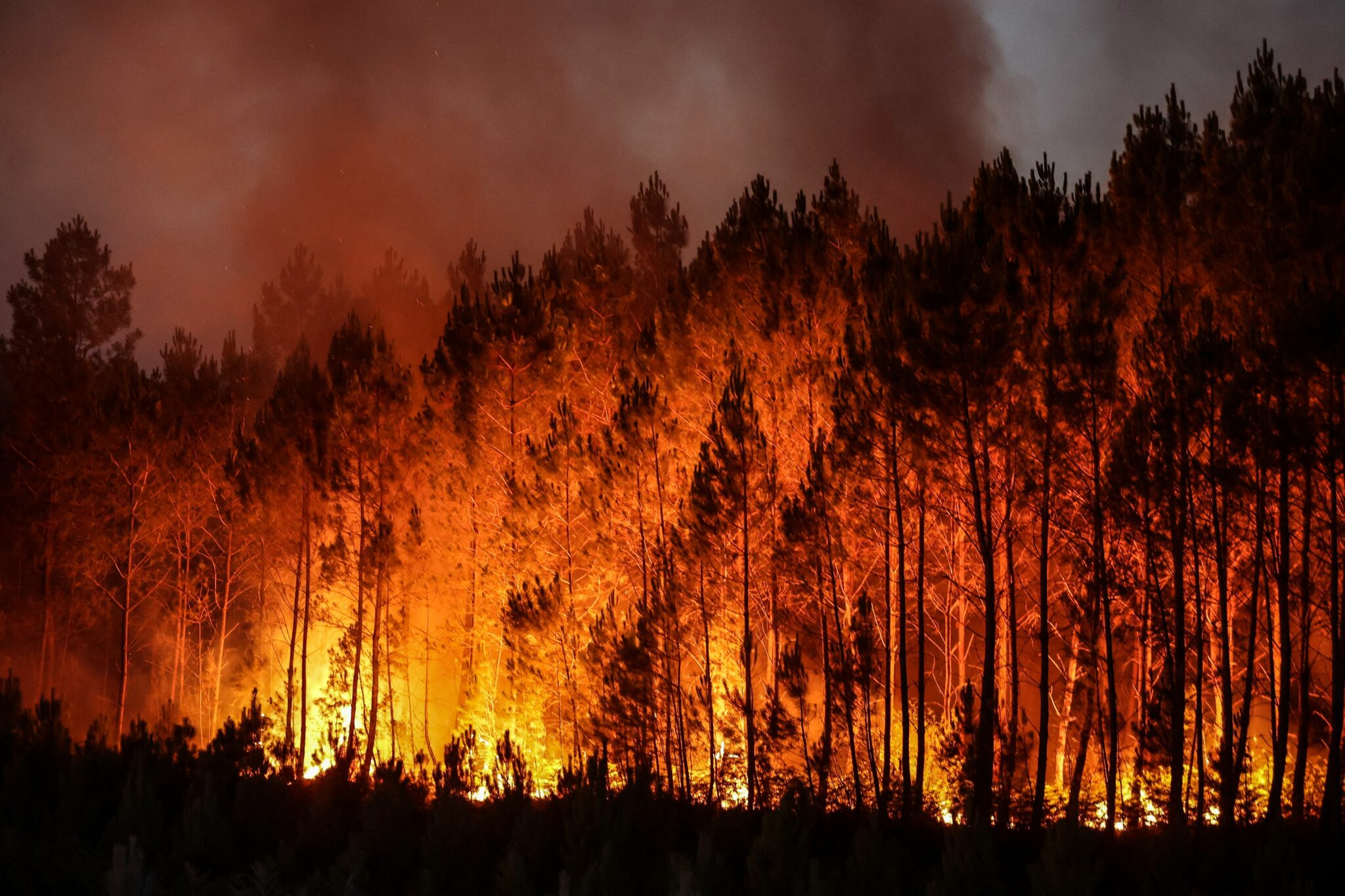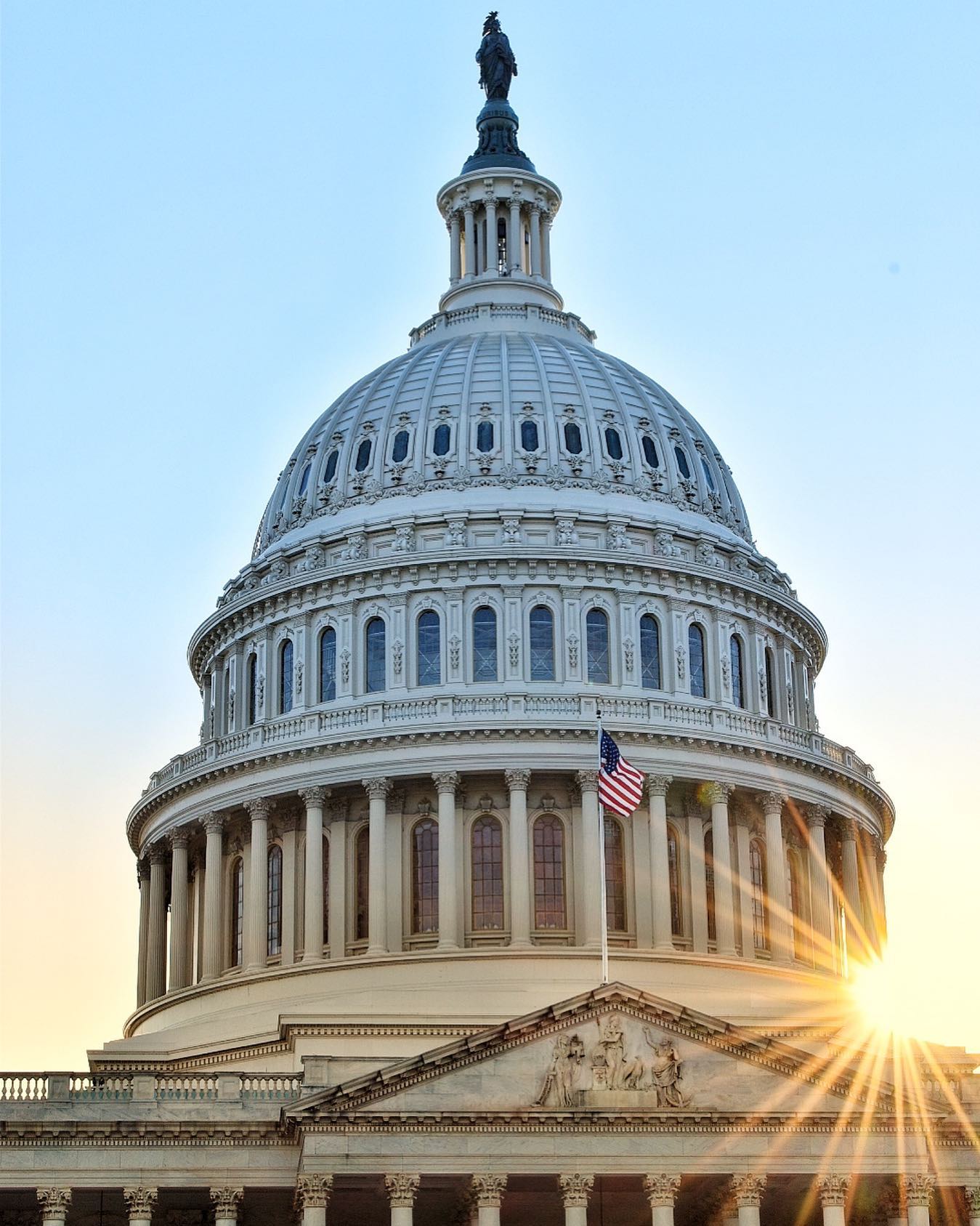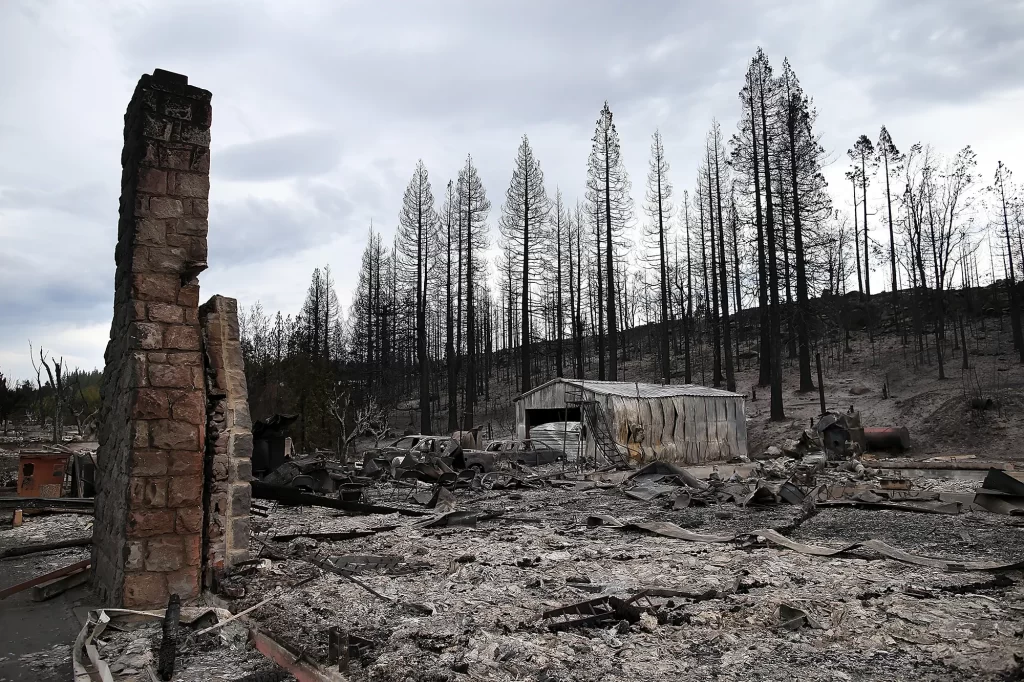Wildfire Alliance
We address wildfire risk and related issues by raising awareness and advocating for federal government solutions.

Increased severity and frequency of wildfires across the US have led to major disruptions in the insurance market leading to drastic premiums increases and non-renewals.
Following a wildfire disaster, the federal response must
be streamlined. It is critical that sufficient resources are readily available
and rapidly deployed and that ample support is available as communities
rebuild.
Risk Reduction & Suppression Resources
We advocate for more federal funding for improving local fire suppression
capabilities, including fire fighter staffing, equipment and training.
Wildfires have a significant impact on water resources including both water quality and availability. Wildfires often contaminate reservoirs and other water sources, regularly impacting water relied on by communities far removed from the fire itself.
The percentage of homes in the WUI ranges from 40-80% of total houses in most western states. Communities
along the WUI must be partners in developing an effective federal strategy in managing the wildland fire risk.
Wildfires release harmful pollutants that degrade air quality, posing significant health risks to nearby and distant communities. Improved monitoring and emergency response plans are needed to safeguard public health during wildfire events.
About the Alliance

Our Purpose
Wildlife Alliance is a growing coalition of local governments and state entities that work with Congress and executive agencies to address important issues related to the increased prevalence and severity of wildfires across the country.
The Wildfire Alliance collaborated with its members to advance priorities, policy and legislative recommendations before Congress. Alliance members set the priorities, policy and legislative recommendations.
Wildfire Alliance staff work to find consensus among its members and provide expertise on navigating the federal legislative process to ensure member objectives are met.
The Challenge
A major reason for the inept federal response is that wildfire issues span multiple Congressional committees and multiple executive agencies play a limited role.
Congress functions though committees. Individual congressional committees have limited subject matter oversight. Wildfire as an issue, however, spans numerous congressional committees that otherwise have little to do with the other. For example, wildfire issues fall under Department of Agriculture (Forest Service), Dept. of Interior (BLM), EPA, Dept. of Homeland Security (FEMA), Financial Services (Insurance), etc.
Therefore, a comprehensive approach is required. To accomplish this, members of Congress must work across multiple committees. Wildfire Alliance exists to help Congress connect the dots and keep the matter front and center in order to address wildfire risks and ramification in a comprehensive manner.
Active Wildfires:
Wildfire Alliance is strictly non-partisan, just like wildfires.
69 thousand
The numbers of wildfires per year has increased from 58,100 in 2018 to 69,00 in 2022. The 10 years with the largest acreage burned have all occured sinse 2004 (EPA.gov).
60 thousand
More than 60,000 communities in the United States are at risk for wildfires, which makes them highly vulnerable to wildfires (usfa.fema.gov).
50% increase
Recent data on fire trends suggests that global extreme fire incidents could rise by up to 14% by the year 2030, 30% by 2050, and 50% by the end of the century (wfca.com).
500% increase
Property insurance premiums have risen by 300%-500% in some communities at high risk of wildfire.
Our Mission
Brief members of Congress on wildfire-related issues, keep the issues front and center, and develop comprehensive policy recommendations at the federal level that complement state and local efforts to combat and adapt to the increased risk of wildfire.


Wildfire Alliance members are the Alliance; as such, members establish the priorities and policy recommendations advanced on Capitol Hill.
Congress works for the American people. Wildfire Alliance advises Congress on wildfire-related matters and amplify the concerns of our member communities. Together, we can ensure that the federal government addresses the challenges faced by Alliance members.


Phone:
(202)-446-1409

Address:
Capitol Hill
512 C ST NE
Washington, DC 20002


